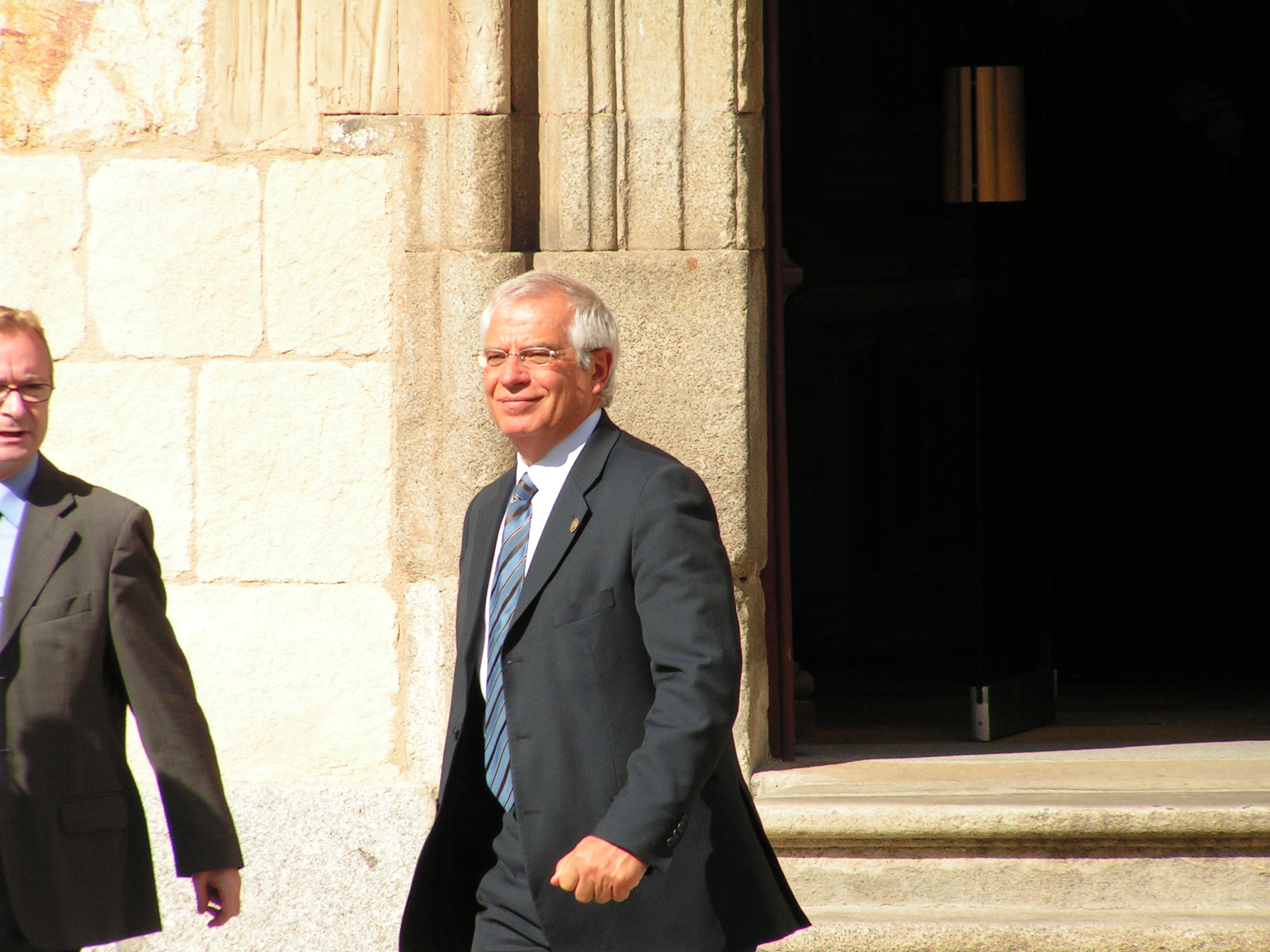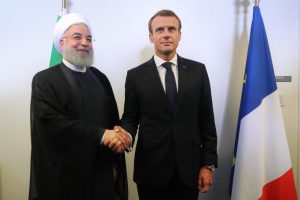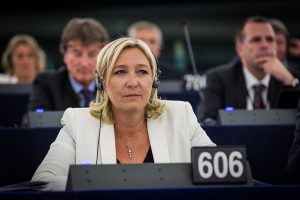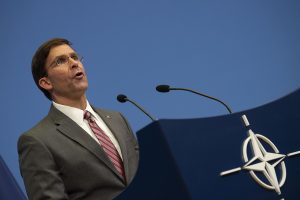by Eldar Mamedov
Josep Borrell will succeed Federica Mogherini as the European Union’s next high representative for foreign and security policy. That is the verdict of the European Parliament’s foreign affairs committee after its confirmation hearing with the nominee on October 7.
The veteran Spanish Socialist Party statesman delivered a solid performance, pledging to use all the levers at his disposal to make the EU a coherent, united, and influential global player. His mastery of EU inter-institutional dynamics, acquired during his stint as the president of the house and the minister of foreign affairs of Spain, undoubtedly helped his case. Borrell managed to convince MEPs across the board of his suitability, apart from those on the extreme right. He will need these diplomatic skills in his new job. His position will finally be ratified when the parliament as a whole votes to approve the new European Commission at the end of October.
In terms of geographical priorities, Borrell´s hearing reflected the make-up of the foreign committee, which includes two sub-committees, on human rights and defense. Many of its members hail from Central and Eastern European states. Their interest in foreign, security, and defense matters mainly concerns their sense of vulnerability regarding Russian violations of international law in their immediate neighbourhood, as in Ukraine. Therefore, predictably, the issue of Europe’s future relations with Russia, Ukraine, and other countries to the east of the EU loomed large during the hearing.
That said, Borrell also offered some clues on what his policies would be on some of the most pressing issues in the Persian Gulf region.
On Iran, he signaled continuity with the line of his predecessor, Mogherini, who deserves praise for being a strong supporter of the 2015 nuclear agreement (Joint Comprehensive Plan of Action, or JCPOA) and broader engagement with Iran. That continuity included an express call on Iran not to respond to U.S. “maximum pressure” with “maximum resistance” and to revert to full compliance with the JCPOA. To avoid a major crisis, Borrell pledged to continue the EU policy of trying to deliver Iran its promised economic benefits, which have been denied since the U.S. withdrew from the deal unilaterally and re-imposed extraterritorial sanctions. That goes hand in hand with his overall ambition to ensure that the EU is able to develop its own policies, without external impositions even from its friends and allies.
Given the format of the hearing, Borrell did not expand on other aspects of European relations with Iran. However, his mid-August piece in the Spanish paper El Pais gives a deeper insight into his thinking. There, apart from saving the nuclear agreement, he identified two key, interlinked objectives when it came to Iran: to “cool off” tensions in the Persian Gulf—to avoid a “war that nobody wants”—and to engage Iran in an “open regional dialogue”.
Borrell got a chance to elaborate on these ideas when asked to describe his plans to ensure the freedom of navigation in a number of key waterways, including the Strait of Hormuz, against alleged Iranian attempts to disrupt it. Borrell made it clear that sending a European naval mission to the Persian Gulf, either as part of a U.S. mission or independently, is not on the cards, due to profound differences on the issue among the European governments. His own assessment was that the “crisis in the Gulf needs easing of tensions, and sending troops will not facilitate a solution”. Instead, he proposed an international conference, under EU auspices, to bring all the Persian Gulf countries to work together on de-escalation.
Some MEPs from the left-leaning groups pressed Borrell on the issue of EU arms export control policies. Those, in theory, are governed by a legally-binding Common Position agreed by the member states in 2008. It lists eight criteria that should be satisfied to enable the states to license arms sales to third countries. Among those is a requirement to ensure that these arms do not contribute to violations of international humanitarian law (IHL) and military conflicts.
Arms sales by the EU members to Saudi Arabia, of course, make a mockery of these principles, as violations of IHL by the kingdom in Yemen are extensively documented. A United Nations report, unveiled in September 2019, said that Britain and France may be complicit in war crimes in Yemen by arming and providing intelligence and logistics support to a Saudi-led coalition. The European Parliament was very vocal on the issue, demanding, in a number of resolutions, full compliance with the Common Position and a halt to arms sales to Saudi Arabia and United Arab Emirates.
Borrell´s response was that each member state is responsible for determining whether licensing arms sales is consistent with the criteria listed in the Common Position. The Council, representing the national governments, is divided on Saudi Arabia, and introducing an EU-wide arms embargo against any third country requires unanimity. A high representative lacks the mandate to compel states to respect the Common Position. However, he committed himself to revise it, and to make it more implementable on the EU level, starting with sharing information among the member states about their respective sales and clients. Whether this exercise can lead to a greater restraint, if not a halt, in arms sales to countries like Saudi Arabia remains to be seen. But Borell´s answers at least indicated some level of sensitivity to the problem. He recalled, as a positive development, that his own country, Spain, has not signed any new arms contracts with Saudi Arabia since the Socialist government assumed power in 2018.
Examples like the arms export issue, among others, make it easy to be cynical about what a high representative, no matter how talented and committed, can achieve in an area like foreign policy, which is still heavily dominated by the national governments. However, one needs to see things in a broader perspective: the post itself is only a decade-long innovation. It’s a work in progress. Persons make jobs, not the other way around. Based on his hearing in the European Parliament, Josep Borrell seems to have the necessary skills to prove the cynics and sceptics wrong.
This article reflects the personal views of the author and not necessarily the opinions of the S&D Group and the European Parliament.






Borrell has mighty big shoes to fill, given Mogherini’s record! . . .just kidding. . . Remember Nuland’s opinion of the EU.
Thankfully Nuland’s opinion does not matter, but the European Parliament’s vote does.
Borrell is a diplomat with high promise taking the helm of an institution evolving to serve an EU positioned to provide multilateral leadership on climate change, nuclear weapons proliferation, refugees and migration where multilateral approaches are what can work and unilateral attempts at imposing power are doomed to failure. This article is an excellent introduction to Europe’s next diplomat in chief.
What is he going to do?
Taking a bottle of aspirins to Tehran and giving them to Zarif would make him sanction-able under US sanctions.
Are the EU trying to fool Iranians?
Mr. Mamedov
You should know better that EU has successfully driven herself to irrelevance on international affairs. The relevant factors in today’ global affairs are The US (and her various satrapies, which includes the EU three, and japan whom the US makes forms and dictates their foreign policy) China, Russia, Iran, and perhaps Turkey. These are the current relevant powers in the world that can affect the world by peace or war. European three separately or collectively by their own doing they have no power and therefore no relevance to affect global affairs. Again, Iran and Russia are the powers, who truly were able to include and engage the european three, and successfully demonstrate to the world Europe’ lack of power for self determination due to their reliance on American leadership. Mr. Borrell, like Federica Mogherini and Mr. Javier Solana, has no power, he will act and talk with no power for action, just a bunch of PR, photo op BS, whatever he says no one will take serious.